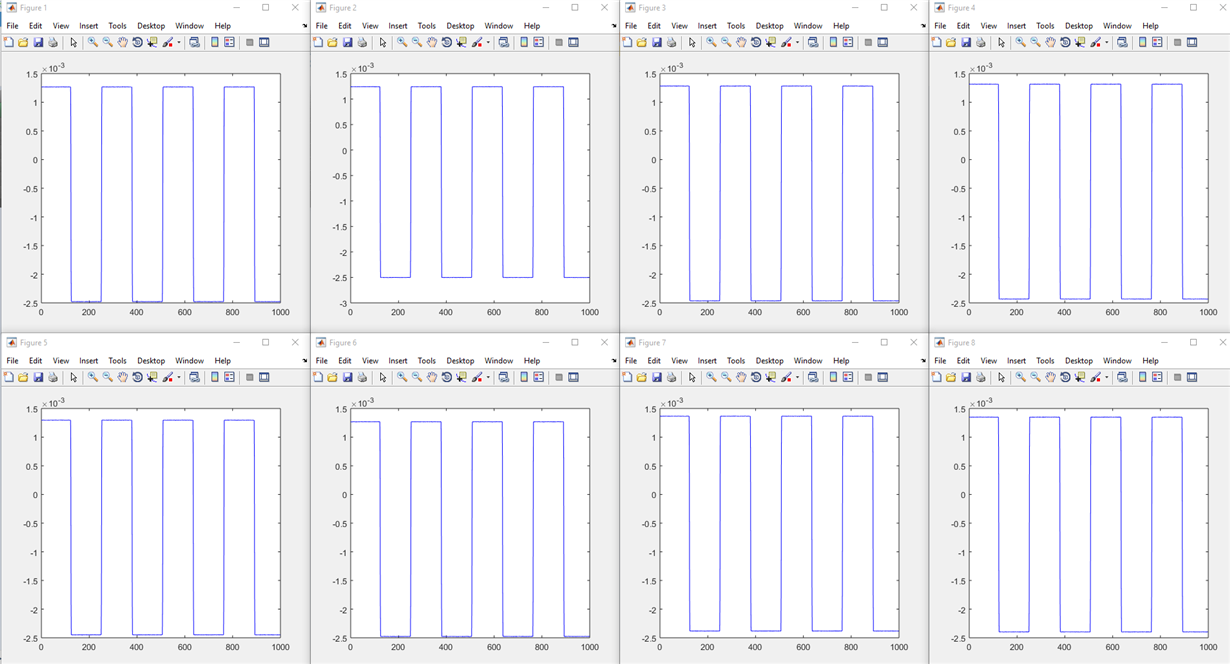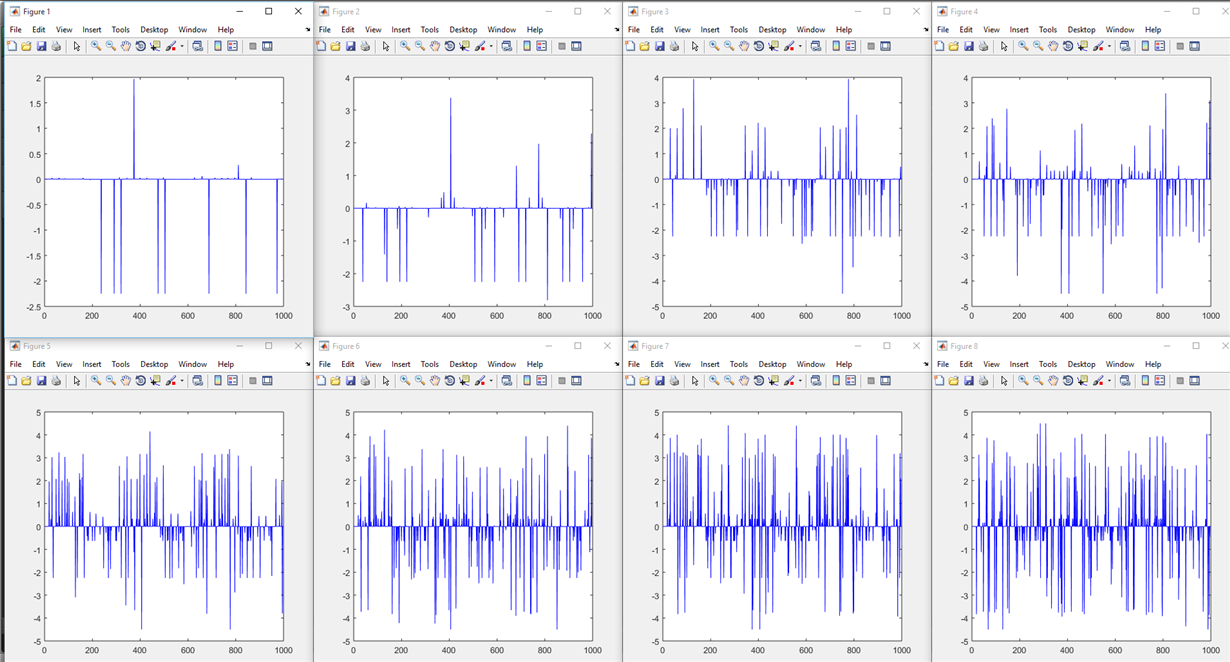Hi,
I am testing a custom ADS1299-based PCB and I am seeing strange behaviour on the DRDY pin above 250SPS. My design uses bipolar power supply. SPI CLK is currently at 1MHz. Data is transfered to MATLAB using a USB to Serial (FTDI) and communication is working flawlessly.
Here is a screenshot of the internal test signals working at 250 SPS (CONFIG1 0x96)
And the corresponding Logic Analyzer acquisition :
Here is a screenshot of the internal test signals at 500 SPS (CONFIG1 0x95) :
And the corresponding Logic Analyzer acquisition showing unexpected toggling of the DRDY pin after the first couple of samples:
If anybody would have a clue about what is going on with the DRDY pin.
Best regards





